
China Media Group's forum on UN 2030 Sustainable Development Goals and China's Experience on Poverty Reduction /CGTN
China Media Group's forum on UN 2030 Sustainable Development Goals and China's Experience on Poverty Reduction /CGTN
The pandemic hurts people equally, and international cooperation is essential, said experts during a forum on the United Nations' (UN) 2030 Sustainable Development Goals and China's Experience on Poverty Reduction hosted by China Media Group (CMG) on the occasion of the UN's 75th anniversary.
Several guests discussed the relationship between the epidemic and poverty and possible ways to lift people out of poverty amid the COVID-19 pandemic during the forum's second panel.
Sergey Sanakoev, president of the Russian-Chinese Analytical Center, said the pandemic worsened Russia's employment and changed Russia's education system, especially for pupils using online education.
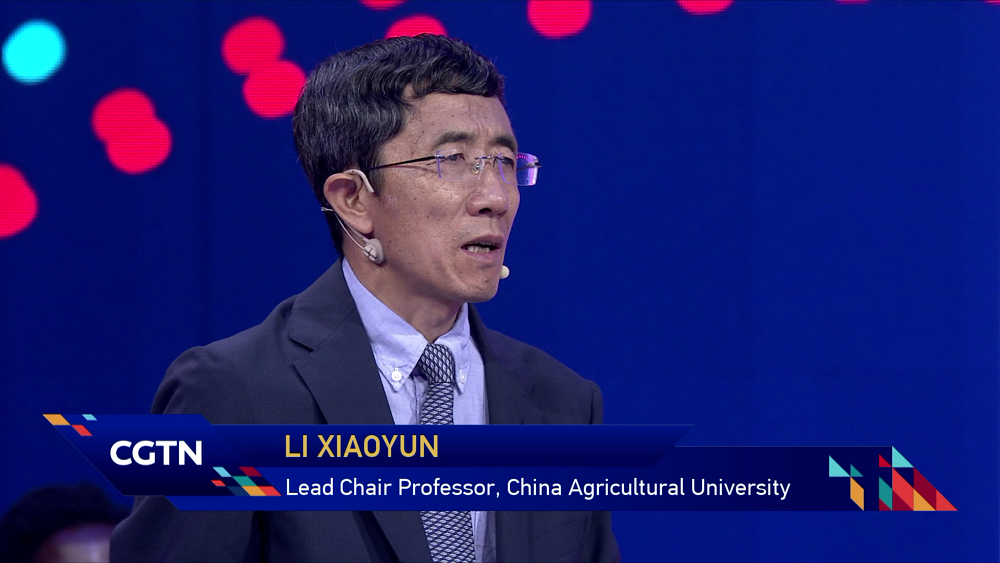
Li Xiaoyun, a professor at China Agricultural University /CGTN
Li Xiaoyun, a professor at China Agricultural University /CGTN
Meanwhile, Li Xiaoyun, a professor at China Agricultural University, said the pandemic also hit China hard even though China has reduced the number of people living in poverty from 98.99 million to 5.51 million between 2012 and 2019.
He said in the first half of this year, there was almost no income for the villagers in Hebian village in southwest China's Yunnan Province, who had already been lifted out of poverty by developing tourism before the pandemic.
Iain Begg, a professorial research fellow at the London School of Economics, said Europe focuses mainly on poverty prevention issues. Though Europe has a "developed social protection system that automatically provides support for those who lose jobs," the great flaw now is that these kinds of schemes do not capture migrants very well, he said.
The U.S., however, is undergoing a distinct situation.
Liu Yawei, a senior advisor on China at The Carter Center, conceded to the benefits of the U.S. Congress's 3 trillion U.S. dollar aid bill, but he also saw the bill’s limits. "On TV, we see Americans were going to the food bank in long lines. On the one side, they should be tested; on the other, they try to get food. So, it's really alarming," he said.
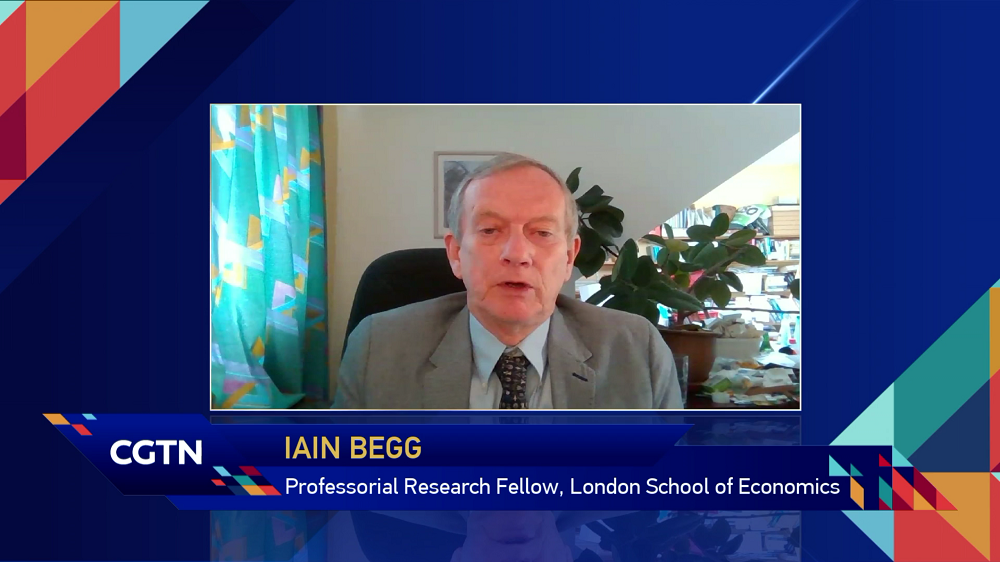
Iain Begg, a professorial research fellow at the London School of Economics /CGTN
Iain Begg, a professorial research fellow at the London School of Economics /CGTN
Liu also pointed out that the "pandemic is equal in terms of hurting people," noting that the New York Times said 250 million people in the world are now facing the threat of hunger, starvation.
Money is not everything
Money is a common concern when talking about building resilience and tackling the problems caused by the pandemic. But it alone cannot solve all of the issues, the experts said.
"Money is necessary but not the sufficient requirement for solving the problems," Begg said. "For one, people would mutually share the loss of income, consciously, or unconsciously. For another, there will be some permanent changes, such as a reduction in air travel, even when conditions turn normal."
"The money would not be sufficient enough to solve all these problems," he said.
Liu seemed to agree. "In the U.S., it is relatively easy to get money – 'just to print money,'" he said.
"However, the U.S. now has the largest number of confirmed COVID-19 cases and deaths. So, they have to prioritize the pandemic and follow the rules before money."
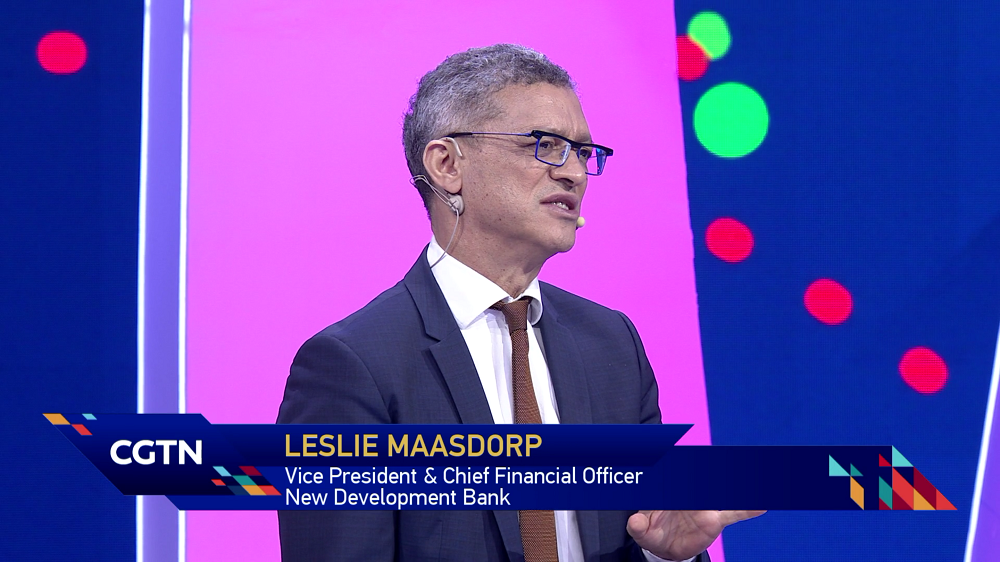
Leslie Maasdorp, vice president and chief financial officer at the New Development Bank /CGTN
Leslie Maasdorp, vice president and chief financial officer at the New Development Bank /CGTN
Leslie Maasdorp, vice president and chief financial officer at the New Development Bank, looked at the money issue in the long-term. In his view, the pandemic worsens the already bad situation that happened in the downgraded and stagnated economies since 2008.
He said the pandemic has highlighted the importance of the digital economy and technology. "It's no longer just a state business market," he said. "In some underdeveloped countries, because they have some of the digital foundations, kids could at least go to school by sitting at home."
Li agreed on the importance of the digital economy. He gave an example of villagers in Hebian Village who have gone back to agriculture and started to collect honey in the forest, which they sell online.
"Some of them have started selling the products through e-shops," Li said. "One of the farmers sold honey through a livestreaming e-commerce promotion and earned about 10,000 yuan in half a year."
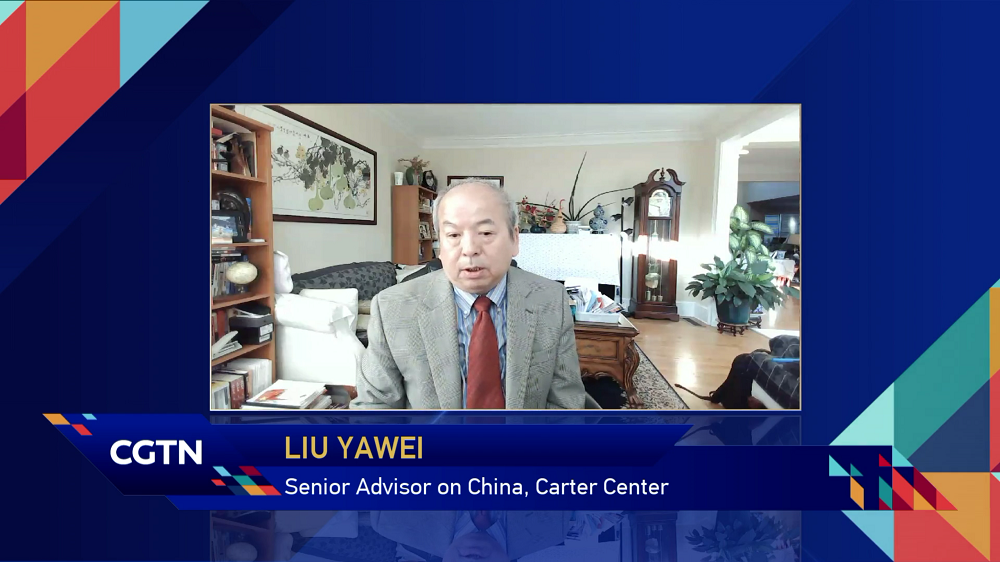
Liu Yawei, a senior advisor on China at The Carter Center /CGTN
Liu Yawei, a senior advisor on China at The Carter Center /CGTN
For Maasdorp, the pandemic has changed the way the New Development Bank invests. Traditionally, it would finance infrastructure, but the pandemic has pushed it to do a "dramatic but soft shift of focus."
The bank gave a one billion U.S. dollars loan to South Africa and seven billion yuan to three provinces in China to buy personal protection equipment like masks, ventilators.
Cooperation is essential
All the guests agreed on the necessity for international cooperation. The other guests echoed Begg's view that the litmus test for international cooperation will be how we manage the vaccines once their efficacy is scientifically proven.
Begg also stressed innovative methods by institutions like the EU, the IMF and G20.
Massdrop said people can only resolve it through global cooperation, while Liu saw a lack of international collaboration as another essential issue that has to be addressed.
Sanakoev extended cooperation to two scenarios of the globalization of humanity, and he held that "we should go to the new, multi-polar one, instead of the old hegemony."
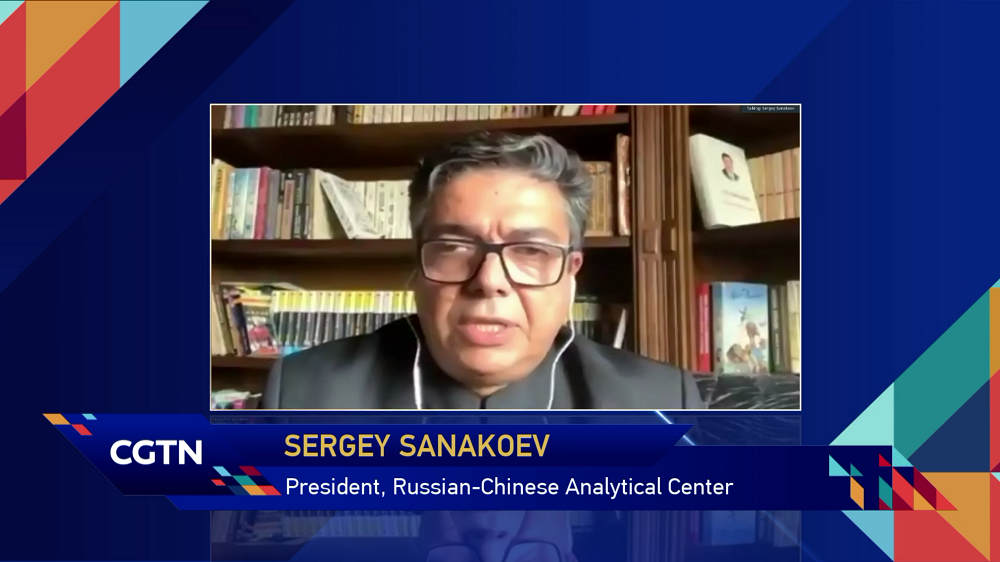
Sergey Sanakoev, president of the Russian-Chinese Analytical Center /CGTN
Sergey Sanakoev, president of the Russian-Chinese Analytical Center /CGTN